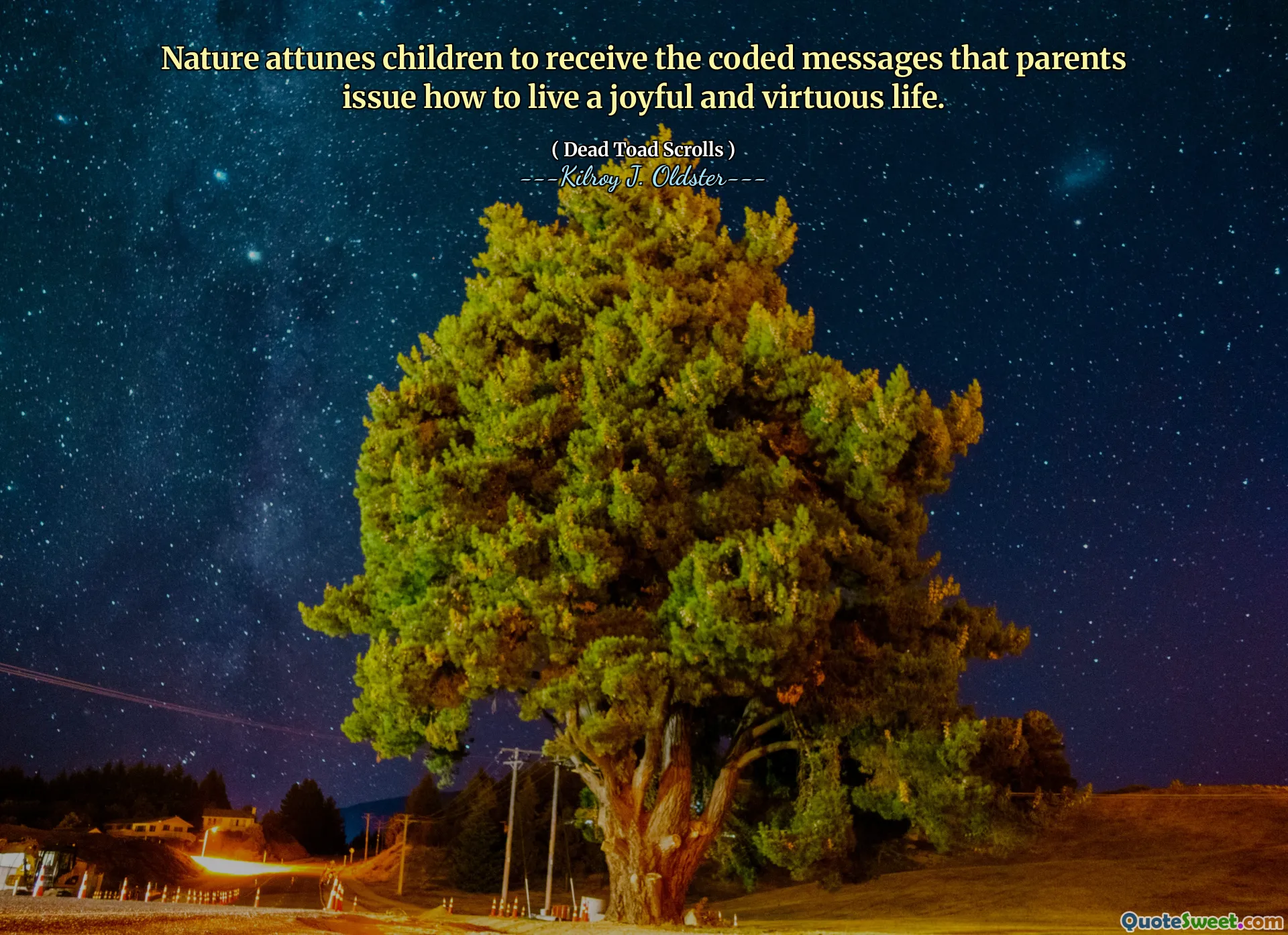
Nature attunes children to receive the coded messages that parents issue how to live a joyful and virtuous life.
In considering the profound relationship between nature, childhood, and moral development, it becomes clear that the environment in which a child grows plays a pivotal role in shaping their understanding of joy and virtue. The phrase suggests that nature acts as a foundational teacher, subtly resonating with children, allowing them to absorb the implicit messages conveyed by their surroundings, particularly the values communicated by their parents. This interplay highlights the importance of early-life experiences and the environment in nurturing ethical virtues and a genuine sense of happiness. When children are immersed in natural settings, they are more likely to develop emotional resilience, a sense of wonder, and a reflective capacity that allows them to interpret and integrate moral lessons deeply. It also underscores the idea that the lessons about how to live well are often encoded in the fabric of the natural world and reinforced through familial interactions. The environment is not just a backdrop but a dynamic part of moral development, providing the context for children to observe, imitate, and internalize behaviors that promote a fulfilling life. Therefore, creating a nurturing natural environment coupled with conscious parenting can cultivate individuals who are equipped with the virtues necessary for a joyful existence. This quote illuminates the subtle but significant ways in which nature and upbringing intertwine, slowly guiding children towards a life imbued with meaning, compassion, and happiness.











